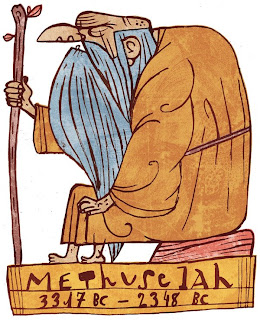Reflecting
on
the
Paris
exposition
of
1900,
Henry
Adams
admitted
to
being
overwhelmed
by
the
new
technologies
on
display.
He
was
awed
in
particular
by
the
electricity-generating
dynamo.
One
wonders
what
he
would
make
of
the
technologies
described
by
Sonia
Arrison
in
her
new
book
"100
Plus."
"We
are
at
the
cusp
of a
revolution
in
medicine
and
biotechnology,"
Ms.
Arrison
announces,
"that
will
radically
increase
not
just
our
life
spans
but
also,
and
more
importantly,
our
health
spans."
This
revolution
will
"change
everything,
from
careers
and
relationships
to
family
and
faith."
Consider
tissue
engineering,
in
which
human
organs,
grown
from
scratch
or
rebuilt
in a
laboratory,
are
transplanted
into
sick
humans.
Scientists
across
the
world,
Ms.
Arrison
says,
are
working
on
engineering
close
to
two
dozen
different
human
organs
in
the
lab,
including
bladders,
lungs
and
hearts.
Progress
is
slow,
and
it
might
be
decades
before
bioengineered
organs
are
commonplace,
but
the
trend-line
is
clear.
The
quest
for
longevity
is
an
old
one,
of
course,
from
Ponce
de
León's
Floridian
adventures
to
Benjamin
Franklin's
wondering
whether
he
should
have
his
body
preserved
in a
cask
of
Madeira
wine
to
"be
recalled
to
life
at
any
period,
however
distant."
Ms.
Arrison
entertainingly
chronicles
efforts
to
conquer
aging
and
death
from
antiquity
to
today.
Food,
sex,
exercise
and
alchemy
have
all
been
employed
to
keep
the
grim
reaper
at
bay.
But
technology
offers
the
most
plausible
route,
she
says,
noting
that
biology
and
computing
are
drawing
ever
closer
together
with
the
sequencing
of
the
human
genome.
What
is
more,
technology
heavyweights
are
paying
attention,
including
Bill
Gates
(if
he
were
a
teenager
today,
Mr.
Gates
once
said,
he'd
be
"hacking
biology")
and
Jeff
Bezos
("atom
by
atom
we'll
assemble
small
machines
that
will
enter
cell
walls
and
make
repairs").
Larry
Ellison,
of
Oracle,
started
a
foundation
more
than
a
decade
ago
to
support
anti-aging
research;
the
institution
donates
about
$42
million
a
year.
Noting
that
similar
worries
have
been
raised
whenever
technology
alters
social
conditions,
Ms.
Arrison
argues
that
apocalyptic
prophecies
are
unlikely
to
be
realized.
Increasing
wealth
and
mankind's
adaptability
and
ingenuity
mean
that
as
new
problems
emerge,
new
solutions
will
be
forthcoming.
"In
looking
at
the
trends
of
history,"
she
says,
"we
can
see
that
even
when
there
are
downsides
to a
particular
wealth-
or
health-enhancing
technology,
the
problem
is
often
fixed
once
the
population
reaches
a
point
where
it
feels
secure
in
spending
the
resources
to
do
so."
Ms.
Arrison's
sunny
outlook
is
infectious,
and
surely
mankind
does
have
remarkable
powers
of
problem-solving
and
adaptation.
But
one
can't
help
wishing,
a
bit
ahead
of
time,
for
some
wise
counsel
from
one
of
those
150-year-olds
she
envisions,
who
might
be
able
to
tell
us
whether
all
the
effort
and
all
the
dreaming
were
worth
it.







